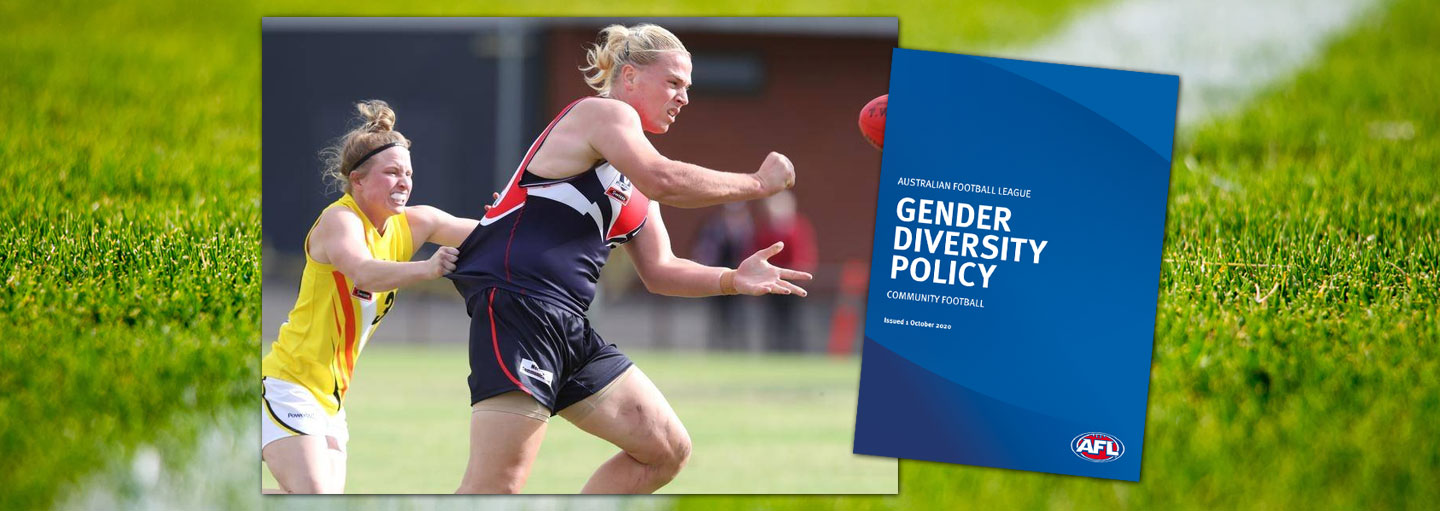The Australian Football League’s new gender diversity policy says social inclusion of transgender footballers is more important than female players having a fair competition.
The AFL updated its gender diversity policy for both elite and community football last month to allow for transgender and non-binary football players to play in AFLW state leagues or elite pathways on the condition that they meet certain criteria.
According to the new Gender Diversity Policy:
“The AFL is committed to inclusion and providing all people with an opportunity to participate in Community Football.
“It is the AFL’s view that, in Community Football, considerations of social inclusion have greater priority than concerns that may exist with respect to competitive advantage in relation to the participation of gender diverse players. That is not to say that competitive fairness is not important in Community Football but rather the balance between social inclusion and competitive fairness is different in Community Football than it is in Elite Football.”
AFL CEO Gillion McLachlan said: “We know that inclusion and belonging deliver real social benefits for individuals and communities, and we want to send a message that all are welcome in our game.
McLachlan went on to say: “We are pleased to collaborate with all the major sporting organisations in Australia in taking this important practical and symbolic step towards improving inclusion in sport and the community more generally.”
The three requirements for the inclusion of transgender and non-binary players are: (1) Testosterone levels have been at or below five nmol/L for at least two years prior; (2) Provide information regarding height, weight, bench press, 20m sprint, vertical jump, GPS data and 2 km time trial; (3) Maintain total testosterone levels below five nmol/L.





















